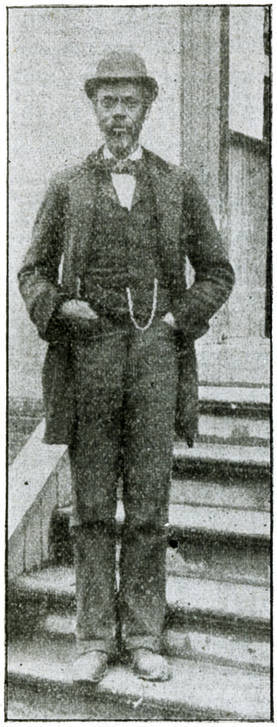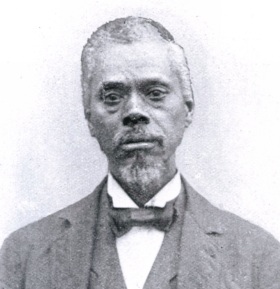 Wilson Caldwell, the first African-American elected to office in Chapel Hill, was born into slavery as the property of David Lowry Swain.
Wilson Caldwell, the first African-American elected to office in Chapel Hill, was born into slavery as the property of David Lowry Swain.
Swain was the president of the University of North Carolina at Chapel Hill for 33 years and owner of thirty-two slaves – who he rented out his slaves to work as janitors, servants and manual laborers for the university. Rather than own slaves itself, UNC used workers from slave-owning faculty or nearby farms.
Wilson Caldwell grew up with his owner’s last name, called Wilson Swain, and received some education – a relative rarity for a slave – alongside Swain’s son. Wilson was mostly treated as part of the family, but he would remain a slave and be called “Wilson Swain” until his emancipation after the Civil War.
At the end of the Civil War, Caldwell stood with representatives from both Chapel Hill and UNC to request protection from Union forces, which was granted. As a newly freed man, Wilson Caldwell was appointed justice of the peace by Governor William Woods Holden – a position he would hold for a year. Caldwell was also elected to the Board of Commissioners of Chapel Hill, and in 1869 he resigned his position at UNC and founded a school for children of color. He purchased 12 acres of land, married Susan Kirby, and fathered 12 children.
“His story is so important to us because his story is UNC’s story,” said Carolina Black Caucus chairman OJ McGhee at the celebration of Wilson Caldwell Day on UNC’s campus. “His story is Chapel Hill’s story; it’s a story of working together.”
In 1875, Caldwell returned to the newly re-opened university and would serve on the Board of Aldermen – now the Town Board – in 1886. Caldwell was placed on the ticket as a Republican without his knowledge, running against Professor Ralph Graves. Upon his election, Caldwell faithfully carried out the duties of the office. Unfortunately, shortly after his election, Jim Crow laws began enforcement in the South, and it would be nearly seven decades before another public office would be held by an African-American.
“Every success in our history is followed by another challenge,” said McGhee. “Look at all the things that are going around now. Look at the individuals attempting to normalize hate … It’s up  to us to stand together, so that those of us who believe in the power of a higher calling can ensure that history doesn’t continue to repeat itself.”
to us to stand together, so that those of us who believe in the power of a higher calling can ensure that history doesn’t continue to repeat itself.”
When Wilson Caldwell died in 1898, he was buried in the Chapel Hill Town Cemetery – where the UNC NAACP chapter honored his legacy this past Sunday.
“We humbly attempt to honor the work that he did with this celebration today,” said Kristin Marion, co-president of the chapter. “In hopes that his legacy is not forgotten, but used to encourage the students and citizens of Chapel Hill not to give up on their community in these present troubling political times.”
Marion was inspired to organize the event highlighting black representation at UNC after researching Caldwell in an honors history course. Panelists at Wilson Caldwell Day discussed the state of race relations on campus and the concerns and challenges posed to Black students. Wilson Caldwell Day also included spoken word performances and remarks from Chapel Hill Mayor Pam Hemminger.
“Every day in Chapel Hill, I’m reminded of people who want to make our community successful, who want to encourage people to reach their dreams,” said Hemminger. “… We are all believers, firm believers, that diversity and diverse perspectives make us a stronger and better community.”
 A former slave, a mentor to students, a justice of the peace, an elected official and educator: Wilson Caldwell’s 57 years were spent working tirelessly for the benefit of the community around him. His example led, and continues to lead, future generations in their pursuit of a better world.
A former slave, a mentor to students, a justice of the peace, an elected official and educator: Wilson Caldwell’s 57 years were spent working tirelessly for the benefit of the community around him. His example led, and continues to lead, future generations in their pursuit of a better world.
“I leave you with this message of togetherness,” said McGhee. “Senator Cory Booker says, from an African proverb, ‘if you want to go fast, go alone. If you want to go far, go together.’ … Any success and progress we’ve had in this community of Chapel Hill or on this campus, we’ve had together … I want us all to remember the things that Wilson Caldwell our unsung founders did, they did together. They did it for change.”
Below: Listen to the spoken word poetry performed at Wilson Caldwell Day
Podcast: Play in new window | Download
Subscribe: RSS

